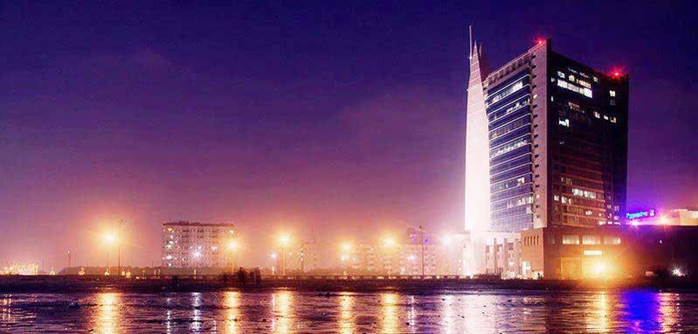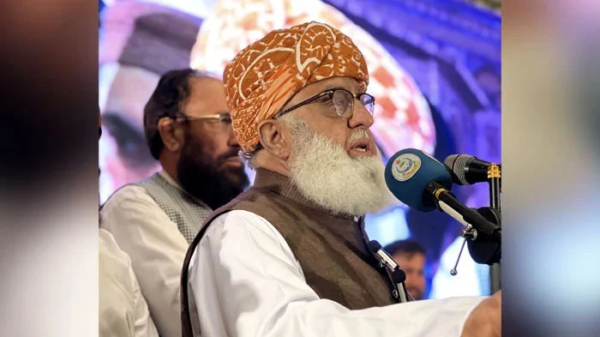To the utter mortification of most Pakistanis, our seaside megapolis has ranked 59 on the Economist Intelligence Unit’s Safe Cities Index, featuring 60 international destinations. The only city ranked below Karachi on the index is Myanmar’s Yangon.
This is a worsening from the last edition of the prestigious biennial index published in 2019, when Karachi, Pakistan’s largest city and Sindh’s provincial capital, weighed in at 57.
Karachi scores poorly on all five sub-indices or pillars of the SCI: Digital security (57/60), health security (55/60), infrastructure security (57/60), personal security (60/60), and the newly added environmental security (57/60). Altogether, these five pillars take stock of 76 indicators related to different aspects of urban safety.
Civil society circles blame Karachi’s poor showing on neglect, incompetence, and corruption in the city and provincial governments of Karachi.
They say Karachi’s infrastructure has deteriorated, law and order situation has worsened, and public healthcare has gone downhill in recent years because of the utter negligence and incompetence of the two governments responsible for the affairs of the country’s financial hub.
“The degradation is a reflection of the deteriorating situation of health in Karachi,” an Arab News report quoted Dr. Qaisar Sajjad, secretary general of the Pakistan Medical Association, as saying. “We don’t see any steps which may make us see any better conditions in the future.”
Dr. Sajjad noted government-run hospitals in Karachi used to offer free treatment and would provide immediate healthcare, especially in case of emergencies, which is not longer the case.
“The sewerage system is fragile, pure drinking water is unavailable and there is abundance of mosquitos due to which health care facilities receive more patients of mosquito-borne diseases”, he was quoted as saying.
Health and climate conditions had deteriorated with the passage of time, according to Sajjad, and the price of medical treatment had shot up manifolds in both public and private sector hospitals of the city.
Karachi-based political commentator and analyst Mazhar Abbas lamented, “No serious efforts have been made for the security of the city”. He noted how Pakistan’s most populous city had only spent a puny PKR 600 million (USD 3.57 million) on the safe city project, compared with Islamabad’s USD 124 million and Lahore’s USD 157 million.
Abbas further noted Karachi was witnessing a surge in crimes, and noted how urban poverty had soared with slums mushrooming to over 8,000 shanty towns in the city from just a few in the 1980s.
According to CNN, while Asian cities like Tokyo, Singapore and Osaka have continuously occupied the top spots year after year, Copenhagen has been named the world’s safest city for the first time, scoring 82.4 points out of 100 in the annual report.
Denmark’s capital jumped from joint eighth place in 2019 to the top of the list, largely thanks to the introduction of an environmental security section, which the city scored particularly well in, along with personal security.
“One key factor that makes Copenhagen such a safe city is its low crime rate, currently at its lowest level in more than a decade,” Lars Weiss, lord mayor of Copenhagen, says in the report.
“Copenhagen is also characterized by great social cohesion and a relatively narrow wealth gap. It is a mixed city where both the cleaning assistant and the CEO meet each other at the local supermarket and have their kids in the same school.
“This is one of the very cornerstones of Danish culture, and it contributes greatly to the high levels of trust and safety that we benefit from.”
Canada’s Toronto just missed out on the top spot, taking second place with 82.2 points, while Singapore was third with 80.7 points.
Although Sydney came fourth, with 80.1 points, the Australian city topped the digital security category, while 2019 winner Tokyo was awarded 80.0 points, putting the Japanese city in fifth place.
Unsurprisingly, Covid-19 is constantly mentioned throughout the report, particularly in the assessments on health security, which Copenhagen scored much lower in than other categories.
According to Nima Asgari, director of the Asia Pacific Observatory on Health Systems and Policies, the subject of urban resilience has previously been focused on disasters and floods rather than health crises, “probably because people never thought the health system would collapse as a consequence of continuous demand from outbreaks.”
The report suggests that this missing link may have led to some destinations being less prepared, and ultimately less successful in limiting the impact of coronavirus.
“Covid-19 teaches that there is always a blind spot, even when there is a lot of activity,” adds Michele Acuto, a professor of global urban politics at the University of Melbourne.
The report goes on to stress that the understanding of health security “needs to be revisited” as a direct result of coronavirus.










